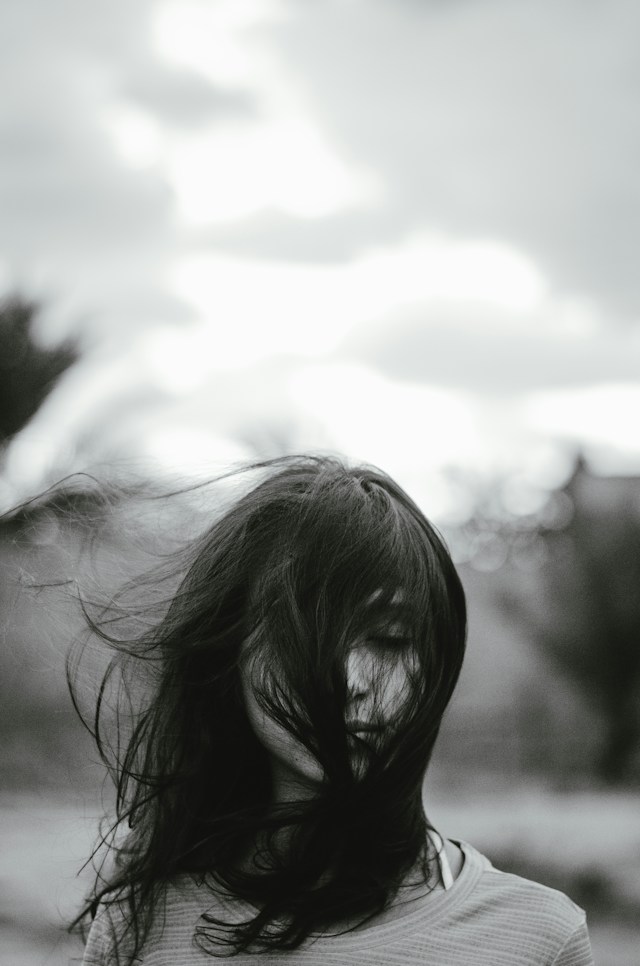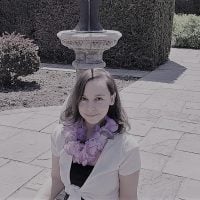.

Last Spring of 2023, I was going through a particularly tumultuous epoch on my so-called spiritual path to awakening consciousness.
Clouded by the thick fog of my grief over the physical loss of a loved one, the sudden onslaught of regular anxiety attacks and symptoms of a digestive disorder, the illness of someone close to me, and the age-old question of what I am to do in this world as an awakening person all nearly brought me to my knees during that time.
By then, I’d studied enough teachings and read enough books to understand the Direct Path, but was nevertheless continuously reminded of an old Zen saying. It reads, “the finger pointing to the moon is not the moon.”
As ridiculously oversimplistic as these words may seem on the surface, what they allude to is far more profound. What they suggest to us is that there is no substitute for the inner experience of the peace that is characteristic of our own true nature. We can study the Buddha’s teachings for several years—decades, even—but if we do not turn inward and marinate in the still presence that we are beyond the thinking mind, we are like branches cut off from the vine.
We can stare at the moon, analyze, and theorize over it scientifically, but only through meditation and rigorous Zen practice can we come to know it; that is, to feel it’s quiet luminosity. This is what the renowned 13th-century mystic and poet, Jalal al-Din Muhammad Rumi meant when he said, “only through the heart can you touch the sky.”
In fact, Zen Masters, Sufi, Hindu, and some Christian mystics, including German Catholic theologian, philosopher, and mystic, Meister Eckhart, for example, have been emphasizing the path of the heart since time immemorial, showing us that the intellect, however superb it may be, is no more than an apparatus for the creative intelligence that animates it. In Advaita Vedanta, it is said that the mind makes a good servant but a poor master, and this is something I now know to be true in my own experience.
So, the question remains: if the mind is but a mere apparatus, as it has been suggested to be, what is this mysterious force you speak of? Moreover, what are we? Good questions, indeed.
Science tells us that atoms are about 99 percent empty space and that they make up well over half of the universe. In other words, the materialist notions are now proving to be outdated at best. Also, if we are going to start exploring what we call reality on the premise that the universe is in fact made up of matter, we are perhaps inadvertently expressing bias, and that is not how scientific inquiry is supposed to work.
Interestingly enough, Buddhists understood this innately hundreds and thousands of years ago as expressed in the words of the heart sutra. “Form is emptiness, emptiness is form,” they stated.
In modern times, we have teachers like Eckhart Tolle and Rupert Spira to help point us back to the truth of ultimate reality, which includes our ever-present nature shining like an eternal sun in the background.
In Rupert Spira’s tiny but poignant book, titled A Meditation On I Am, he so eloquently paints a portrait of that elusive yet intimate essence that breathes life into each and every cell of the body. It is what is longed for and yet conveniently forgotten or overlooked in favour of objective experience.
Rupert Spira, a British spiritual teacher and philosopher, is based in Oxford, United Kingdom. Born on March 13, 1960, in London England, he began questioning the nature of reality at an early age. As a teenager, he developed a fascination with the poetry of Rumi and began to meditate. This led him to a 20-year study in the Advaita Vedanta tradition under the guidance of Dr. Francis Roles and Shantananda Saraswati, the Shankaracharya of Northern India.
It was Dr. Francis Roles who introduced Spira to the Direct Path teachings, which inform us that with time, as we abide as our real Self, our understanding of what we are becomes increasingly familiar to us and permeates our everyday experience. In addition, Rupert studied the teachings of Sri Ramana Maharshi, Nisargadatta, Robert Adams, and Krishnamurti. To date, he continues to reside in the UK but hosts meetings and retreats all across the European and North American continents.
Below are 12 meditations from his book A Meditation On I Am that can point us in the direction of understanding our true nature as presence.
If this presence had a voice, this is perhaps what it would tell us:
1. “I am
I have no words to express Myself
but all words express only Me.
I have no meaning
but impart meaning to all that is perceived.
I am without beginning and end
but all things begin and end in Me.”
2. “I have no name
but am called by all names
I have no form
but all form indicates Me
I have no origin
but am the origin of all things
I am without division
but all divisions exist in Me.”
3. “I am the knowing with which all things are known
I am the presence in which all things appear
I am the substance out of which all things are made
I am and know myself alone.”
4. “I shine in the mind as the knowledge ‘I am’
I pervade the body as the feeling of being
I am felt in the heart as peace and happiness
It is My being that shines as existence in all things.”
5. “Whatever appears, appears in Me but I do not appear
I am the silence in the music
and the music in silence
I am concealed in the world
but reveal the world
I am the womb and the tomb
of all that exists.”
6. “I am the knowing in all that is known
I am the experiencing in all that is experienced
I am empty of objects but full of Myself
I am open without resistance”
7. “All colours borrow their light from My luminosity
All lovers borrow their affection from My love
All things borrow their existence from My being.
All knowledge is a reflection of My intelligence
I am inexhaustible.”
8. “I move but am motionless
am motionless but move
I am concealed in boredom
but am not Myself boring
I am veiled by doubt
but am not Myself in doubt
I live beneath fear
but am neither afraid nor frightening
I abide in Myself.”
9. “I am the bright, self-luminous emptiness of the mirror
And the colourful, dancing images that appear in it
It is from Me that the world borrows its reality
I am immanent and transcendent”
10. “I cannot be known
but know all things
I cannot be understood
but am all that is ever known.”
11. “I do not exist but am never absent
I am nowhere and everywhere
I am nothing and everything
I play.”
12. I live in the space between thoughts
but I play in your thinking
My abode is the moment between breaths
but I dance in your breathing
Time and space move through Me
but I do not move through them
I am self-aware, self-luminous, and self-evident.”
To end, below is a lovely meditation by Rupert Spira himself.
~

This account does not have permission to comment on Elephant Journal.
Contact support with questions.